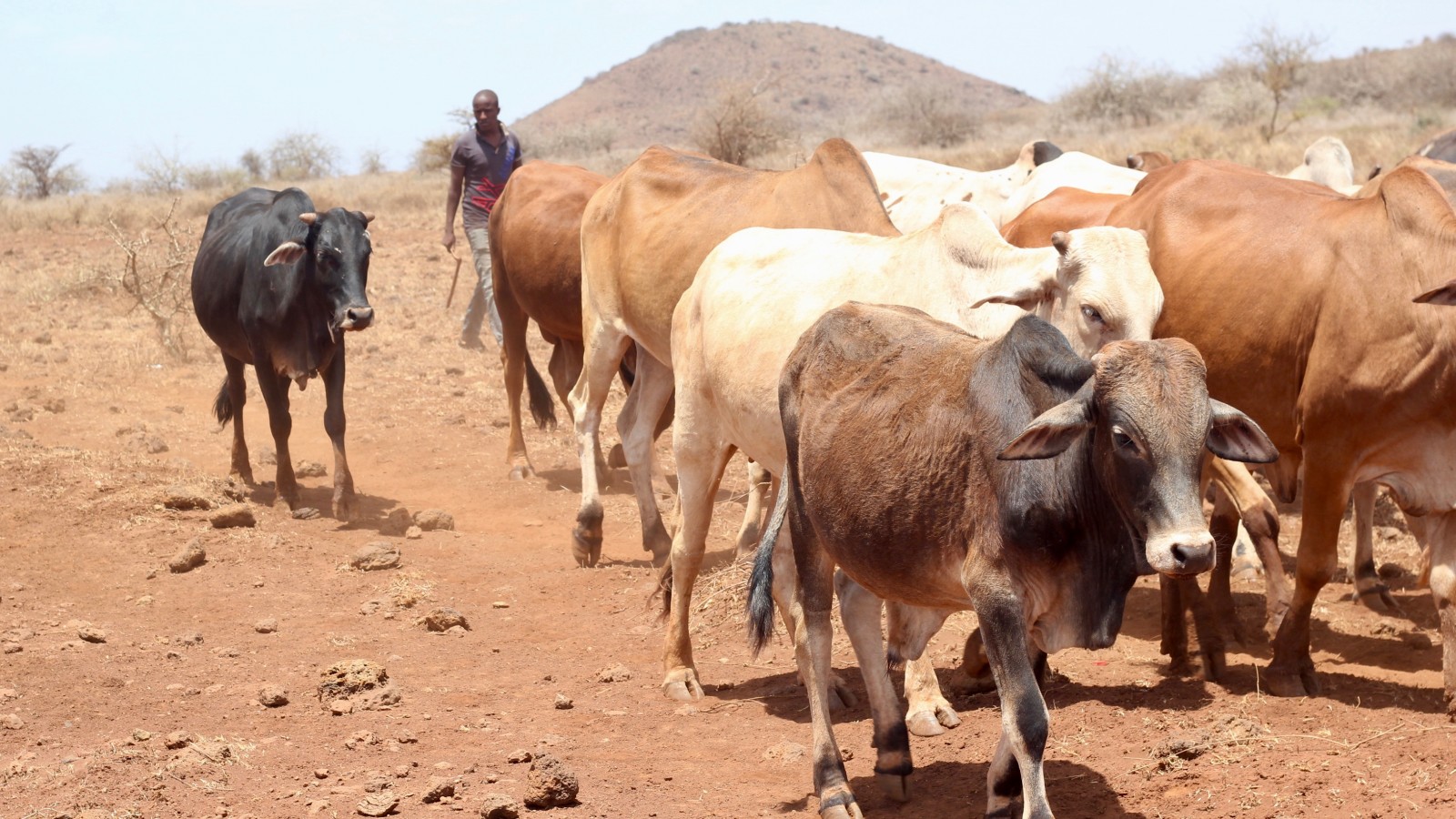The Stream, September 13, 2023: ‘Catastrophic’ Flooding in Libya Leaves Thousands Missing, Dead

Pastoralists in northern Kenya. Photo © Kandukuru Nagarjun/Flickr
YOUR GLOBAL RUNDOWN
- The collapse of two dams in northeast Libya, brought on by heavy rains, has killed at least 5,000 people, while more than 10,000 remain missing.
- Storm Daniel, the same weather system that hit Libya, killed at least 15 people and damaged infrastructure and farmland in central Greece.
- The heaviest rains ever recorded in Hong Kong fell early this week, the latest devastating storm to hit China in the past month.
- Arctic lakes in Greenland are thawing earlier and freezing later, representative of a global trend with important carbon ramifications.
Pastoralist communities in western Kenya are forced to drink saline water and live within a national park as a result of rising water levels on Lake Baringo.
“We used to farm here. [But] we had to obey nature. It took away the farms we used to depend on … and freshwater from River Waseges to water our crops and [for] animals, and for household use, including drinking. Now we only have [salty] lake water.” — Ruth Kentyenya, Loboi village resident.
In 1995, western Kenya’s Lake Baringo covered 45.5 square miles, Al Jazeera reports. But shifting tectonics beneath the earth’s surface, climate change, and human-caused land degradation — greater rates of erosion and siltation — led to the blockage of underground outflow, and increased flow from channels into the lake. As a result, in 2020, the lake covered an area of more than 75 square miles.
The waters are still expanding. Nearly 50 families have been forced to abandon their decimated farmland and migrate hundreds of meters uphill into Lake Bogoria National Park. Residents no longer have access to the River Waseges, their previous source of freshwater.
In the long-term, scientists worry about the region’s food and water security. They also note that as tectonic cycles shift – a process that takes between 25 and 40 years – the volume of the lake may change dramatically.
— Christian Thorsberg, Interim Stream Editor
Recent WaterNews from Circle of Blue
- Chicago Suburbs, Running Out of Water, Will Tap Lake Michigan — America’s groundwater is now running dry where water is abundant.
- Offering Up Advice For Farmers, Universities Add To US Water Pollution — Formal fertilizer recommendations encourage producers to pour on more.
The Lead
Storm Daniel, a tropical cyclone, made landfall in Libya earlier this week, dropping huge amounts of rain as it moved inland toward the country’s northeast. CNN reports that the heavy precipitation caused two dams on Wadi Derna, a river that runs through the port city of Derna, to collapse.
The flowing water moved quickly through the city of 90,000 people. Bridges and buildings were destroyed; cars and power lines were reportedly swept up easily into the rushing waves, according to the Associated Press.
More than 10,000 people remain missing, and at least 5,000 people have died, at the time of writing.
International officials worry that Libya’s fractured politics — the country is currently under the control of rival administrations, each with varied backings and supporters both domestically and abroad — will hamper recovery efforts.
This Week’s Top Water Stories, Told In Numbers
2.25 billion
Maximum number of euros the EU Commission chief said Greece could withdraw to fund recovery efforts following Storm Daniel’s deadly landfall earlier this week, Reuters reports. The weather system dropped up to half a foot of rain in the country’s central Thessaly region, killing at least 15 people and damaging homes, schools, roads, crops, and farms. The deadly event is the likely bookend to Greece’s hottest summer ever recorded.
140
Number of years that Hong Kong has tracked precipitation records, Reuters reports. Never has more rain fallen than did over the weekend, with eight inches measured on Hong Kong’s main island. Ongoing flooding in heavily urbanized business districts and streets forced the closure of schools and businesses. Two people were killed and more than 100 people were injured.
On the Radar
The temperatures of northern lakes are rising twice as fast as the global average, Yale Environment 360 reports. And in the Arctic, the “rate of ice loss has sextupled over the past 25 years.” Researchers studying Arctic lakes in Greenland are concerned that if such trends continue — lakes freezing later in the season, and thawing earlier in the year — these polar freshwater bodies will no longer serve as carbon sinks, instead releasing the heat-trapping gas into the atmosphere as thawing occurs.
More Water News
Dragonflies: A new study predicts that many dragonflies and damselflies, indicator species of healthy freshwater habitats, will be pushed to near-extinction by the end of the century — a result of degraded habitat due in large part to climate change, InsideClimate News reports.
Arctic Protections: The Biden administration announced last week the cancellation of Trump-era oil leases in northeast Alaska’s Arctic National Wildlife Refuge, protecting thousands of acres of wetlands, lakes, and rivers from drilling, PBS Newshour reports.
Christian Thorsberg is an environmental writer from Chicago. He is passionate about climate and cultural phenomena that often appear slow or invisible, and he examines these themes in his journalism, poetry, and fiction.







Leave a Reply
Want to join the discussion?Feel free to contribute!